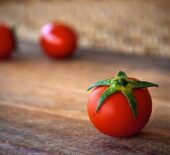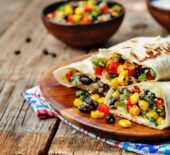Most of us have read something about minerals like calcium and iron. You may not know about other minerals and why your body needs them to function. This blog will introduce or make you more familiar with three more mighty minerals our body needs to function optimally. So, sit down class today’s lesson we will be discussing magnesium, potassium, and zinc!
Why do we need to care about these three minerals? Each plays important roles which help our body maintain its function and structures.
Let’s start with magnesium. Why do you need this mineral?
- Allows the body to use protein as energy.
- Allows the body to use energy (like a car being able to use the petrol in the tank).
- Regulates your blood pressure.
- Regulate the blood sugar levels in your blood.
- Creates part of the teeth and bones.
- Keeps your heart pumping at a normal rhythm.
- Keeps your nerves and muscles working.
Where can you get magnesium?
- Green, leafy vegetables like spinach
- Bran cereals
- Wheat germ
- Quinoa
- Whole-wheat breads
- Whole-wheat cereals
- Brown rice
- Dried peas
- Beans
- Lentils
- Chickpeas
- Nuts e.g. walnuts hazelnuts
- Seeds e.g. sunflower, flax seeds and pumpkin.
Next is potassium: Why should you care about eating enough of this mineral?
- Potassium helps keep your blood pressure at a healthy level.
- It helps maintain normal function in the nerves in your body.
- Decreases the risk of osteoporosis by increasing the density of your bones.
- Maintains the balance of the fluids in your body, both in and outside the blood.
- Needed for the heart to function.
- Needed for your muscles to contract.
Where can you find potassium in food?
- Fruit-all types including dried fruit.
- Vegetables-again, all varieties but can be found in especially considerable amounts in tomato, spinach, sweet potato, avocado, potatoes, and winter squash.
- Milk
- Yoghurt
- Legumes
- Nuts e.g. pistachios, almonds.
- Seeds e.g. pumpkin, flax, and sunflower.
The final mighty mineral is zinc! This mineral is needed to:
- Helps to optimise your immune system function.
- It helps to heal your body from injury.
- Helps your body to use the protein you eat.
Where can you find zinc in food?
- Meat including organ meat like liver.
- Chicken
- Fish
- Quinoa
- Brown rice
- Rolled oats
- Cornmeal
- Whole-grain and whole-wheat breads and pastas
- Fortified breakfast cereals.
- Dried beans, peas, and lentils.
- Nuts e.g. pine, peanuts and Brazil.
- Seeds e.g. pumpkin, sunflower and chia.
Take home message: Before you pop out to get a supplement for these minerals it is important to try to get these three minerals from food sources before supplements, Food has so many other components which we have not discovered yet in science. A balanced diet really is the key to long term health, allowing us to get all the components your body needs.
Reference:
Practice TGRoN. Functions and Food Sources of Some Common Minerals Canada: Dietitians of Canada; 2015 [updated 20/10/2015; cited 2016 27/09/2016]. Available from: http://www.pennutrition.com/viewhandout.aspx?Portal=UbSe&id=JMfrWQE=&PreviewHandout=bA==.








